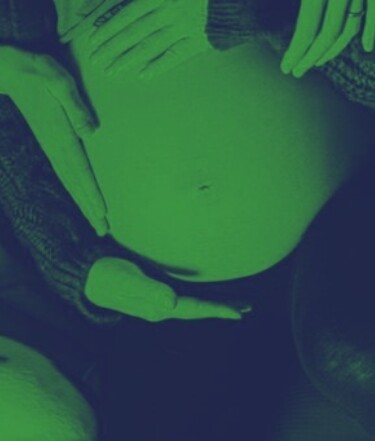
§ 219a StGB
Physician Kristina Hänel was convicted under criminal law for providing information on abortion. We supported her in the proceedings.
The physician Kristina Hänel was found guilty under Section 219a of the German Criminal Code (StGB) for providing information on abortion on the website of her medical practice.
The verdict led to a broad social and political debate about the ban on "advertising" abortions in Section 219a of the German Criminal Code (StGB).
In the meantime, the Bundestag had passed an amendment to the law. Since March 22, 2019, it has been lawful for physicians to indicate with impunity that they perform abortions. Since the reform of Section 219a of the German Penal Code (StGB), it was hence no longer a criminal offense for doctors to state on their website that they offer abortions. However, doctors were still threatened with criminal prosecution if, like Kristina Hänel, they provided additional information about this health service, for example if they named or explained the method of abortion used. With the amendment to the law of June 24, 2022, the Bundestag has now decided to repeal this criminal prosecution as well.
Kristina Hänel filed a constitutional complaint with the Federal Constitutional Court on February 19, 2021. Previously, the Berlin doctor Bettina Gaber, who was also convicted under Section 219a of the German Penal Code (StGB), appealed to the Federal Constitutional Court with a constitutional complaint. They both claimed that the criminal conviction violated their fundamental rights and that the provision in § 219a StGB was unconstitutional. Because the issue is of great importance for pregnant women and doctors, GFF supported Kristina Hänel.
GFF-Amicus Curiae letter to the Federal Constitutional Court
In the proceedings of Kristina Hänel, the Federal Constitutional Court requested statements from parties and knowledgeable third parties (§ 27a BVerfGG). On April 12, 2022, the GFF, as a party not involved in the proceedings and a so-called "friend of the court," filed an amicus curiae brief, i.e., an external opinion on its own initiative in the proceedings. The opinion concluded that Section 219a of the German Penal Code (StGB), even in its reformed version, violated the fundamental rights of physicians and patients.
GFF CONTACT POINT FOR THOSE PROSECUTED UNDER § 219A STGB
For years, abortion opponents on the basis of § 219a StGB repeatedly filed criminal complaints against doctors as well as individuals and counseling centers. Out of fear of a trial and a conviction, many of those affected by the charges deleted the information from their websites and Internet presences. In this way, § 219a StGB acted as a muzzle for doctors even without a conviction. At the same time, it became increasingly difficult for pregnant women to obtain information about the possibilities of a legal abortion. It is true that § 219a of the German Penal Code (StGB) does not make it a punishable offense if medical associations or government agencies publish lists of doctors who offer abortions. Presumably also because this puts doctors particularly in the radar of radical pro-lifers, the number of doctors actually listed there is low (as of November 2021, this was less than 300 of an estimated 1,000 doctors).
In order to support physicians reported under § 219a StGB, the GFF offered a contact point over a long time period, where initial questions after a report could be clarified.
THE GUIDELINE
The GFF published a legal opinion on the constitutionality of this criminal offense on the occasion of the expert hearing in the Bundestag on § 219a StGB on June 27, 2018.
BACKGROUND TO THE CASE
A cause worthy of support
The case of doctor Kristina Hänel was not an isolated incident. In Germany, although abortion is generally prohibited under Section 218 of the German Penal Code, it remains exempt from punishment under certain conditions under Section 218a of the Penal Code.
However, doctors were not allowed to provide sufficient information about such exempted abortions either. Even after a reform of the law in 2019, doctors continued to be liable to prosecution under Section 219a of the German Penal Code if they provided information on their website about the methods of abortion they offered, the costs or deadlines for patients, or that the abortion would be performed in a protected atmosphere (as in the case of the Berlin gynecologist Bettina Gaber). Opponents of abortion therefore repeatedly filed criminal charges against doctors on the basis of this paragraph - including against Kristina Hänel.
The effect of this ban on information were far-reaching in practice. It did not just affect doctors who wanted to disclose the range of their medical services. Pregnant women who were considering having an abortion performed without penalty were also unable to obtain factual and up-to-date information directly from medical professionals. Instead, they were forced to use sources that may have been unreliable or outdated, and often deliberately non-factual. An informed decision regarding the medical procedure and the method of abortion as well as regarding the choice of a doctor was hence not possible.
The ban on information violated fundamental rights
In the view of the GFF, § 219a StGB violated several fundamental rights. In particular, the ban on information encroached on the fundamental right to freedom of profession of practicing physicians (Article 12, Paragraph 1 of the German Basic Law), which also includes external presentation. Closely linked to this was the violation of the freedom of belief and ideology (Article 4 Paragraph 1 GG) and the freedom of opinion (Article 5 Paragraph 1 Sentence 1 Alt. 1 GG), if doctors state that their moral-ethical attitude obliges them professionally to advise their patients on abortions.
In addition, the ban on information on the part of pregnant women, as standardized in Section 219a of the German Criminal Code, violated their right to make informed decisions about health care services, which is derived from their physical integrity (Article 2, Paragraph 2 and Article 1, Paragraph 1 of the German Constitution) (right to patient self-determination), as well as their right to make self-determined decisions about abortions, which is derived from their general right to privacy (Article 2, Paragraph 1 in conjunction with Article 1, Paragraph 1 of the German Constitution). Finally, it also violated their freedom of information and basic rights of equality (Article 3 para. 3, 2 GG). These interferences were, in the GFF's view, just as unjustified as the violation of the principle of equality (Article 3 para. 3) by establishing special rights for women and others capable of giving birth.
The ban on information in Section 219a of the German Criminal Code (StGB) was already not suitable to actually serve the protection of unborn life. The actual concern of the legislature seemed rather to prevent a normalization and commercialization of abortions. Thus, the goal of § 219a StGB was to influence social attitudes towards abortions - a purpose that is only indirectly related to the protection of unborn life. This legislative interest is clearly lower than the protection of life; it must take a back seat to the central fundamental rights of doctors and pregnant women.
In addition, contradictions arose with the impunity of abortion under § 218a StGB. These could only be resolved by at least making it unpunishable for doctors to provide factual information about an abortion.
Finally, criminal sanctions for factual information about abortions are also not compatible with the right to health, as the UN Committee on the UN Convention on the Elimination of Discrimination against Women (CEDAW) or the UN Committee on Economic, Social and Cultural Rights (ESC Committee) have stated.
Ambiguities in the reform violate the principle of certainty
Despite a supposedly protective reform, it did not just remain a violation of fundamental rights: The newer regulations were so ambiguous, unclear and contradictory that they also violated the principle of certainty rooted in the rule of law (Article 20 (3) GG.) and particularly relevant to criminal law (Article 103 (2) GG and § StGB).
This requirement states that the prerequisites and content of provisions relevant to fundamental rights must be formulated clearly, comprehensibly and without contradiction, so that the legal situation is understandable to those affected and their conduct can be guided accordingly. The newer paragraph 4 of 219a StGB caused confusion as to where and when the boundary between "offering" and "indicating" lay or began. In addition, there was a blatant contradiction of values: If doctors referred to the medical association's information on abortions, they remained unpunished, but if they copied the information and made it available in identical form on their own website, they were liable to prosecution. With this ambiguity and inconsistency, physicians were unable to identify beyond doubt which action was punishable and which was not.
Criminal law - too sharp a sword
The ban on information was also disproportionate because it used the sharpest weapon of the constitutional state: criminal law. Lurid advertising of medical services or downplaying of risks is already prohibited under medical professional law. According to Section 7 (1) of the (Model) Professional Code of Conduct for German Physicians and the Unfair Competition Act (UWG), only factual information related to the profession is permitted. Advertising that is praising or misleading is contrary to the profession; this also includes lurid advertising. Section 219a of the German Criminal Code (StGB) is therefore not required to prevent problematic advertising in the narrower sense. We therefore welcome the abolition of Section 219a StGB and celebrate this success.



